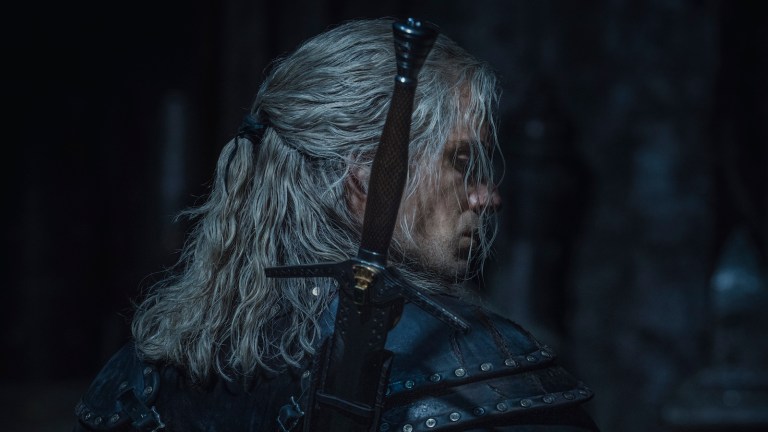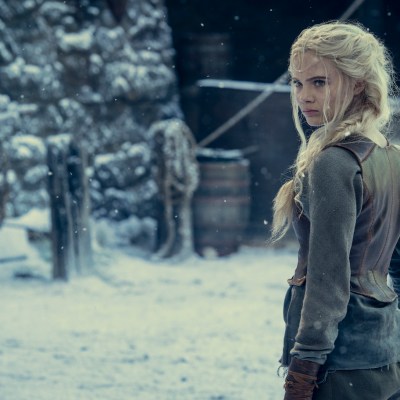The Witcher: Blood Origin – Why the Conjunction of the Spheres Matters
With the announcement of the cast of Netflix’s The Witcher: Blood Origin, the merging of worlds comes to the forefront for this live-action prequel series.

Like other explorations into the world of The Witcher, the upcoming spin-off prequel The Witcher: Blood Origin both expands upon and provides context for the main series. With Netflix announcing the limited series’ cast, most of whom are playing elven characters, a few questions arise. How are the elves involved in the creation of the witcher race, and why is the so-called “conjunction of the spheres” at the center of not only this origin story but also the beginning of the fall of the elves?
UK fans may recognize a few faces among the cast, including comedian and children’s television cult star Lenny Henry who will play Balor, Dylan Moran (Black Books) who will play the humorously named Uthrok One-Nut, and Huw Novelli (The Capture), playing Callan “Brother Death.” But there are also several stage actors such as Zach Wyatt who will play the role of Syndril and Amy Murray who will portray Fenrik, as well as at least one actor, Lizzie Annis in the role of Zacaré, who is making her professional debut.
Although character descriptions have not yet been shared, the elvish-sounding names and the logline for The Witcher: Blood Origin hint at a deep dive that could inform much about how monsters and witchers rose to power while the elves began their decline. It reads:
“Set in an elven world 1200 years before the world of The Witcher, The Witcher: Blood Origin will tell a story lost to time – the creation of the first prototype witcher and the events that lead to the pivotal ‘conjunction of the spheres,’ when the worlds of monsters, men, and elves merged to become one.”
It stands to reason that the once mighty elves would have had the upper hand initially when the worlds came together, and with monsters emerging from their hell dimension and wreaking havoc, the elves could use the resource of humans from one newly arrived reality to manage the plague of creatures coming from the other. This would explain why they might want to create a new race like the witcher: to even the playing field between the unwanted invaders and protect themselves.
Little did they know humans would turn out to be the real enemy. Viewers saw how the elven race had fallen on hard times in season 1 of The Witcher, and the exiled elf king Filavandrel even appears in the upcoming animated movie prequel, The Witcher: Nightmare of the Wolf. As unwelcome as witchers might be among humans, they did prove to contain enough monsters to allow their short-lived peers to multiply, pushing out the less prolific elves.
Thus the title The Witcher: Blood Origin takes on several meanings. The limited series is, of course, an origin story for the witcher race, but it is also the beginning of two bloody conflicts. The conjunction of the spheres begins the battle between civilized species and monsters, but it also portends the less obvious bloodshed of the downtrodden elven race. By the time the many centuries have passed between the two series’ point of view, the prejudice against and the segregation of the elves will become echoes of earlier violence in the long halls of history.
Remember that the next time you see the elven skeletons that are piled within the Tower of Aretuza, the sorceress stronghold that once belonged to those whose bones now litter the ground. The Witcher: Blood Origin will likely only make the pain of the slow genocide that much more tragic.
Other cast joining the previously announced Michelle Yeoh (Scían), Sophia Brown (Éile), and Laurence O’Fuarain (Fjall) are Mirren Mack (The Nest) as Merwyn, Jacob Collins Levy (Young Wallander) as Eredin, Francesca Mills (Harlots) as Meldof, and Nathaniel Curtis (It’s a Sin) as Brían. Declan de Barra, who writes for the main series, will act as showrunner, and Sarah O’Gorman (The Last Kingdom) and Vicky Jewson (Born of War) will each direct three of the six episodes.


